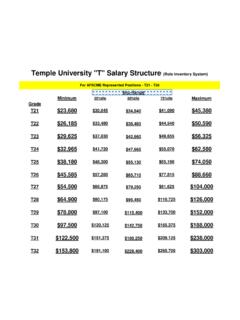Transcription of Grading Scale 93-100 A 80-82 B- 67-69 D+ - Sites
1 War and Peace temple University Summer 2 2015 June 22nd July 31st Political Science 0864 722 Danielle K. Scherer 431 Gladfelter Hall Office Hours: By appointment (in person or via googlehangout) University Course Description Total war, weapons of mass destruction, genocide. These were not solely inventions of the 20th century nor are they the natural consequences of a violent human nature. Leaders, armies, and the strategies they pursue are rooted in their social and political context. Weapons are the products of not merely technological but also historical and cultural development. Battles occur on a political and historical terrain. Learn how ancient ideology, medieval technology, modern propaganda, and more have changed how humans wage war and make peace.
2 NOTE: This course fulfills the World Society (GG) requirement for students under GenEd and International Studies (IS) for students under Core. Students cannot receive credit for this course if they have successfully completed History 0864/0964. Course Catalog ( temple University) Course Design This course explores the themes of war and peace in the context of today s world. How do we understand and experience these concepts? Why do countries go to war? Why do we experience peace? Is peace peaceful? Why do we fight? Over the course of six weeks, we will explore how different authors have understood and studied these concepts as well as how these concepts map onto the real world. We will pay particular attention to exploring the ethical considerations of certain types of war, tools of war, and practices of peace.
3 Course Materials In lieu of a traditional textbook, all materials will be made available on blackboard. I have placed a series of digitized texts in the Content folder organized sequentially by module. I may add or change the readings as the course goes on; I will notify you if that is the case. Be advised that if you do not do your readings each class, your participation grade will suffer significantly. Evaluation Assignments will be weighted in the following way: Video Responses 25% Blog Posts 45% Blog Responses 10% Policy Brief 15% Policy Brief Review 5% Grading Scale 93-100 A 80-82 B- 67-69 D+ 90-92 A- 77-79 C+ 63-66 D 87-89 B+ 73-76 C 60-62 D- 83-86 B 70-72 C- Below 60 F Course Requirements We learn best when we learn from each other.
4 Because we will not have the convenience of a traditional classroom (or even a live one), we will rely on a number of different ways to interact with one another. Your grade will be based not only on the work you produce but also on how you are able to engage with the work of others. You will be asked to engage in a number of participatory activities through the online module, and you are expected to prepare ahead of each to ensure you both put in, and get the most out of, your experience. I expect that students treat each other in a courteous and respectful manner. Failure to act in a collegial spirit will result in a lowered participation grade. Video Responses (25%) We will use a service called VoiceThread to allow us to have a form of live discussion through our online class.
5 I will post weekly video lectures, and you will be required to respond to the lecture, or to the responses of your classmates, at least twice a week. These needn t be super long video responses; 1-2 minutes will suffice, but if you feel like you have a lot to say feel free to go a bit longer, but keep it under 10 minutes. I will explain this process at the beginning of term through an activity that should help you get the hang of VoiceThreading. You can start by setting up a free account here: Blog Posts (45%) For each module, you will be given one or two writing prompts for a blog of at least 400 words. Modules including new prompts for the week will go up Monday night; your responses will be due before the next module goes up.
6 You will be evaluated based on your understanding of the readings, linkage relevant historical events, and your ability to analyze and explain the topics we will discuss, in addition to your basic writing skills. Blog Responses (10%) Each week you will respond thoughtfully to other people s blog postings from that week. You must respond to at least two posts by the time the new prompt goes up. Policy Brief (15%) At the end of the term, you will be asked to write a policy brief where you will be presented with a scenario and asked to draw on what you have learned over the course of the semester to provide analysis and advice. You will be provided with more detailed instructions in the future. Policy Brief Review (5%) For your last assignment, you will read two other students policy briefs and write up a brief analysis of their work, identifying the strengths and weaknesses of each.
7 To ensure everyone receives at least one person s feedback, you will be assigned to one peer and will have the choice of your second. Course Policies Late Work I do not accept late work. Because of the asynchronous nature of this course, everyone will be participating according to their own schedule, but in order for you to fully interact with your classmates, you must complete assigned work within the time allotted to each module. Failure to do so will result in a grade of zero being assigned to those modules work. In the rare case where extenuating circumstances prevent you from completing your work on time (sickness/hospitalization, acts of God, etc), exceptions can be made but only if you contact me in a timely manner.
8 Netiquette Part of your education involves learning to be professional; this manifests itself in several ways for the purposes of this class. When communicating with your professors or your peers for the purposes of this class, you should use the professional standards you might use with an employer. This means avoiding text speak or unnecessary abbreviations. More specifically, it means including some kind of greeting to introduce your email (Dear Professor X, for instance) my name is not Hey and you ought not to begin your email with such a greeting; Hey Danielle is completely acceptable. Similarly, when referring to someone else s comment or blog, you should not say that guy or that chick you should use their name.
9 To help others learn your name, please start all video or voice posts by saying your name. Academic Integrity Plagiarism and cheating will not be tolerated. It will earn you an immediate F in the course and be reported to the Undergraduate Chair and Dean. All submitted work should be your own. If you paraphrase the words or ideas of another person, you should also attribute credit to the source by citing it in the text and in the references. Consult a style guide or me if you have questions about whether a source should be cited. Special Accommodations Any Student who has a need for accommodation based on the impact of a disability should contact me privately to discuss the specific situation as soon as possible.
10 Contact Disability Resources and Services at in 100 Ritter Annex to coordinate reasonable accommodations for students with documented disabilities. Course Schedule June 22nd June 27th: War, Peace, and Human Nature Lecture available in blackboard via voicethread Blog Post Ongoing Conflicts Readings: Excerpts from Pearson What is Peace Clausewitz Chapter 1 Lecture - available in blackboard via voicethread Blog Post Knowing War and Peace June 28th July 4th: Causes of War (domestic and international) Lecture - available in blackboard via voicethread Blog Post Response to Dominic Tierney s NPR interview Readings: The Melian Dialogue Jackson and Morelli The Causes of War Waltz Man, the State, and War Introduction and Conclusion Blog Post Assessing the causes of war where does was happen?
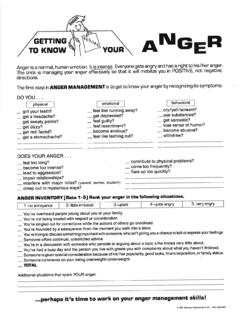

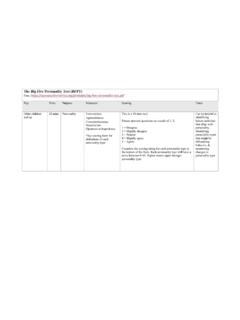

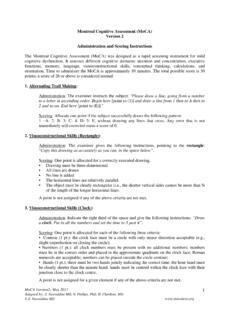




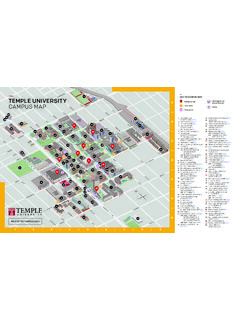
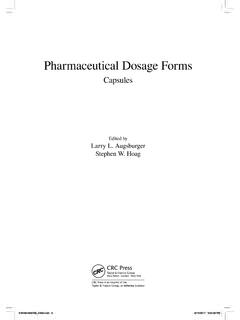
![[Starbucks] Social Media Strategy - Temple MIS](/cache/preview/7/1/b/a/3/7/9/a/thumb-71ba379a8e2af090672707c9418c40f1.jpg)

